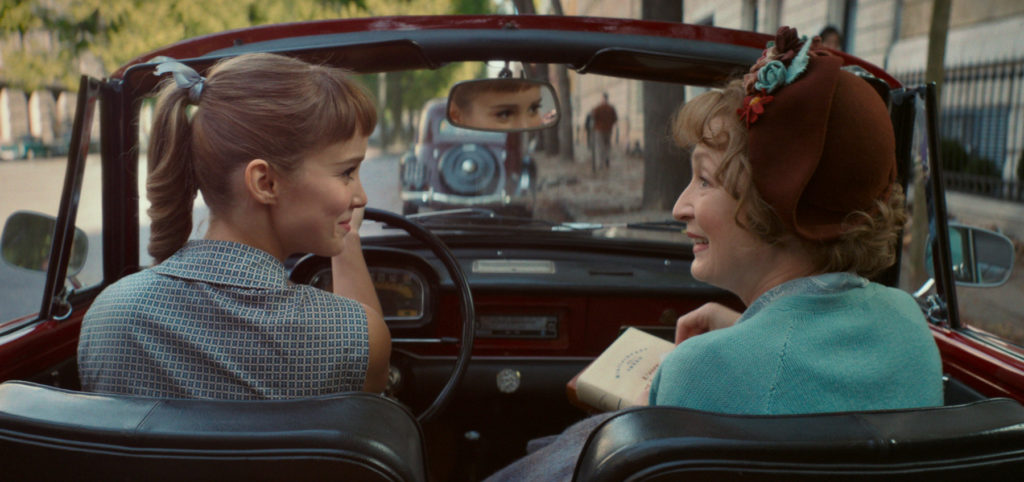
In the goodhearted Mrs. Harris Goes to Paris, Lesley Manville plays the titular character, a war widow who cleans houses in 1957 London. Although there is nothing in her hardscrabble circumstance that seems to justify her bubbly hopefulness, we in the audience know that everything is going to work out. This is an unabashed Feel Good movie.
Mrs. Harris Goes to Paris is an unchallenging, fluffy film and doesn’t pretend to be anything else. It is well-crafted and well-acted, especially by Manville.
Lesley Manville has amassed a distinguished body of work in Mike Leigh films alone: Secrets & Lies, Topsy-Turvy, High Hopes, All or Nothing, Vera Drake, and, most brilliantly, in Another Year. She was Oscar-nominated for Phantom Thread.
The great Isabelle Huppert plays the sourpuss role that Lesley Manville often plays in Mike Leigh films. I’m always glad to see Isabelle Huppert and Nathalie Baye, even in the one-dimensional roles they’ve gotten in the past two years.
The one singular segment of Mrs. Harris Goes to Paris is a depiction of the opening for the 1957 Dior collection. I have little (maybe no) interest in fashion, but I was riveted.
I wasn’t planning to see this movie, but The Wife really felt like sitting in a movie theater, which I always encourage. Although I had predicted the the ending within 30 minutes, it wasn’t a painful experience.
Nothing wrong with a dose of sentimentality once in a while. Mrs. Harris Goes to Paris is in theaters.
